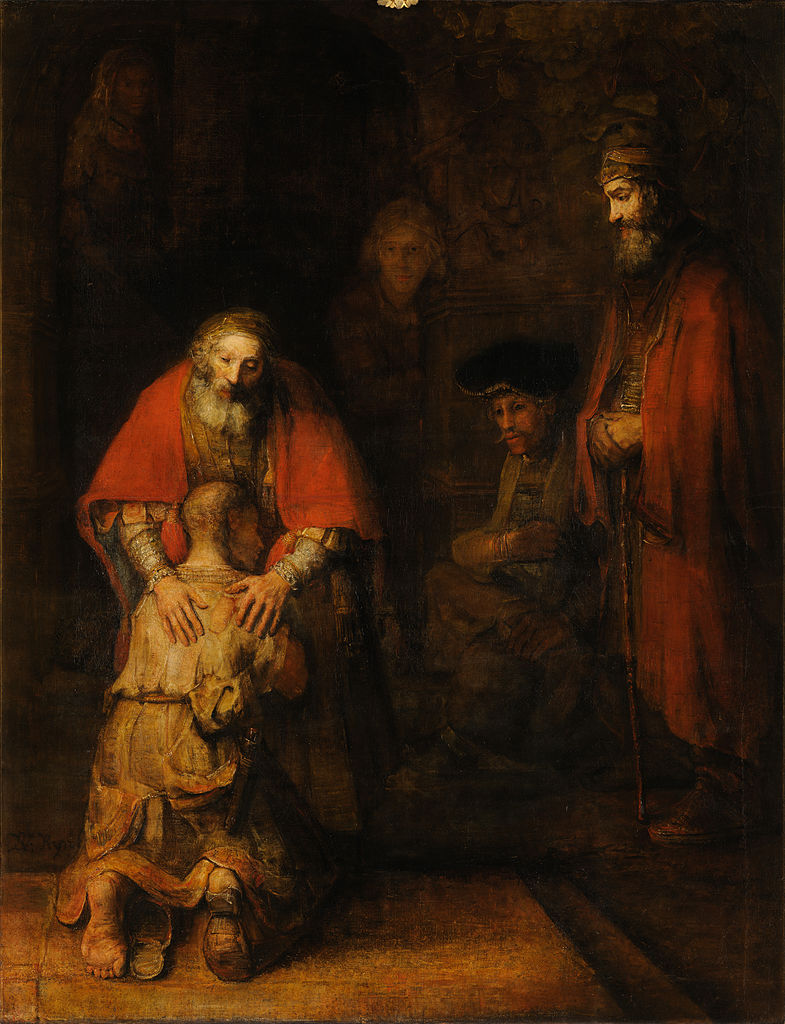
How’s that for a title? As counterintuitive as it may seem, it’s entirely possible for a Christian to make false idols out of certain teachings (doctrine), certain behaviors (morality) or certain prayers or ways of praying (piety). How? By putting them at the center of his faith in place of what belongs there: Jesus of Nazareth. As odd as it may seem to you, I know that it’s possible… I’ve done it.
I need to be absolutely clear here: in no way am I saying that doctrine, morality and piety are bad or even unimportant. On the contrary, they are both good and essential.
What I
am saying is that they are not the beating heart of our faith. No, that place belongs only to Jesus Christ. Right doctrine, morality and piety
flow from Him… they
cannot replace Him. As soon as we elevate any of them to the center of our faith we have erected a false idol and have reduced Christianity to something else: ideology, moralism or pietism, none of which is authentic Christianity.
I’m reminded here of the opening of Pope Benedict’s first encyclical,
God is Love, wherein he wrote this: “Being Christian is not the result of an ethical choice or a lofty idea, but the encounter with an event, a person, which gives life a new horizon and a decisive direction.”
According to this brilliant german intellectual and profoundly good man, being a Christian is not first about what I do or decide -- i.e. about right ethics -- or about what I think -- i.e. about right ideas, right doctrine -- but is about something that
happens to me: an encounter with
an event -- an event! -- an event that is not merely something but some
one: Jesus of Nazareth, the Son of God, the Word Made Flesh.
[caption id="" align="alignnone" width="504"]

Caravaggio, The Incredulity of St. Thomas, 1601-02[/caption]
It is
because of this encounter with Him that everything changes -- my life has a new horizon and a decisive direction. It is
because of this encounter that I think and act differently: I believe in His words and follow His example, i.e. I believe in certain doctrines and accept a certain morality and embrace a certain piety.
As I noted above, I know that it’s possible to reduce or distort Christianity in this way because I’ve done it: in my case, my temptation is to ideology, to making Christianity fundamentally about certain ideas or doctrines. At times I have become
so fascinated,
so entranced by what Jesus teaches in and through His Church that I came to value those teachings more than Him.
Again, I’m not saying that doctrine is bad or irrelevant… it’s most definitely a great gift from God. But doctrine itself is not
God Himself. It’s the gift, not the gift-Giver. And apart from Him, it cannot, does not and will not transform my life.
The same is true with morality: moralism is not authentic Christianity; but a facsimile of the real thing: a close copy, but not the real deal. For some, it might be right sexual morality; for others, social justice. Both are good, necessary and crucial, but neither is what ultimately defines us a Christians.
And the same is true with piety: pietism is just as inauthentic as ideology or moralism. For some it might be the Extraordinary Form of the Mass (the Traditional Latin Mass), for some it might be Contemporary Christian worship music and for some it might be praying in tongues. All of these things are good and can lead us closer to Him, but they are not
Him, and it’s possible for us to subtly replace Him with them and in so doing to distort our Christian faith.
One might rightly ask… if it’s so easy to reduce our faith in these ways, if it’s so easy to distort Christianity into ideology, moralism or piety, then how do we maintain an authentic Christian faith in which we hold Christ in the center without doing away with doctrine, morality or piety?
To this, I can only speak for myself: I have found that I’m more able to avoid these distortions by renewing that encounter on a daily basis, that is by regular contact with God every day through a prayer life that is more about listening, meditating and simply being in His presence (contemplating) than about talking. If being Christian is the result of an encounter with the Word, then it is by encountering that Word on a daily basis that I deepen my Christian faith.
But what about you? What are the ways that you have found to keep Christ at the center of your own faith?
 Antonello da Messina, St. Jerome in His Study, 1460-1475[/caption]
Antonello da Messina, St. Jerome in His Study, 1460-1475[/caption]












 Mihaly Munkacsy, Christ before Pilate, 1881[/caption]
Mihaly Munkacsy, Christ before Pilate, 1881[/caption] The Resurrection of Christ, Paolo Veronese, c. 1570[/caption]
The Resurrection of Christ, Paolo Veronese, c. 1570[/caption]